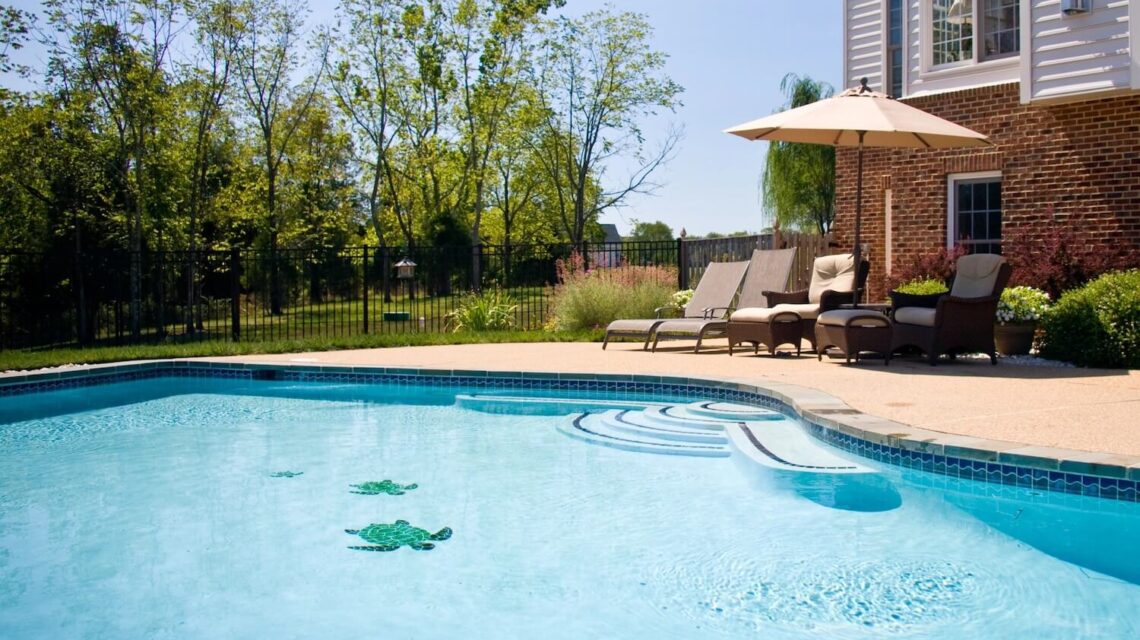Maintaining a swimming pool can be both a rewarding and challenging endeavor. Homeowners often take pride in DIY projects, believing they can save money by handling repairs themselves. However, when it comes to pool maintenance and repairs, the DIY approach can quickly spiral into a costly and time-consuming affair.
This article delves into the true costs associated with DIY pool repairs and highlights the reasons why hiring professionals is often the more prudent investment.
Understanding the True Costs of DIY Pool Repairs
1. Hidden Homeowners Expenses
Many DIY enthusiasts underestimate the hidden costs associated with pool repairs. While the initial materials may seem affordable, there are often additional expenses involved:
- Tools and Equipment: If you don’t already have the necessary tools, you’ll need to purchase or rent them. This can include everything from tile cutters and coping saws to specialized pool repair kits. The cost of these tools can add up quickly, especially if you buy high-quality equipment that is likely to last. For instance, a basic pool maintenance toolkit might range from $100 to $300, and renting specialized equipment like a tile cutter can cost anywhere from $50 to $100 per day.
- Supplies and Materials: Pool repairs often require specific materials that can be expensive. For instance, if you’re repairing or replacing tiles, the cost of the tiles, adhesive, grout, and sealants can add up. Depending on the size of the repair, the cost of materials can easily range from $200 to $1,000 or more. Furthermore, buying materials in bulk to save money may lead to leftover supplies that you will never use again.
- Waste Disposal: Depending on the nature of the repairs, you may need to dispose of old materials or debris. This can lead to extra costs if you need to rent a dumpster or pay for waste disposal fees. On average, waste disposal can cost between $150 to $300, depending on the volume of debris generated.
2. Time Is Money
One of the most significant costs of DIY repairs is the time spent on them. Pool repairs can be labor-intensive and complex. If you are not experienced, you may find that a project that you thought would take a weekend stretches into weeks. Consider the following:
- Opportunity Cost: While you’re repairing your pool, you’re sacrificing time that could be spent on leisure activities or productive work. The hours invested in learning about repairs, shopping for supplies, and executing the work could be better spent elsewhere. For instance, if a repair takes you 10 hours over two weekends, consider what you could have accomplished during that time, whether it’s a personal project, quality family time, or even extra work hours for income.
- Learning Curve: Many DIY repairs require a learning curve, especially if you’re unfamiliar with pool systems. Researching, experimenting, and possibly failing before getting it right adds to the overall time and frustration of the project. It’s not uncommon for a novice to spend several hours watching tutorials and reading manuals before even starting the repair, adding to the time commitment significantly.
3. Potential for Mistakes
When you take on a DIY repair, there’s always a risk of making mistakes. Common pitfalls include:
- Improper Techniques: Without professional training, you may inadvertently use incorrect techniques or materials, which could lead to further damage and costly repairs down the line. For instance, using the wrong type of adhesive for pool tiles could result in tiles coming loose over time. Even minor mistakes, such as not adequately mixing materials or applying them unevenly, can lead to significant long-term issues.
- Neglected Safety Protocols: Professionals are trained to adhere to safety protocols. If you’re unfamiliar with pool repair, you may overlook important safety measures, putting yourself at risk of injury or creating hazardous conditions. For example, not properly handling chemicals used for pool maintenance can result in hazardous reactions, posing health risks to you and your family.
- Worsening Issues: If a repair isn’t done correctly, it may exacerbate existing problems. For instance, a leak that isn’t adequately fixed can lead to structural damage and costly repairs that far exceed the original issue. In some cases, you might even discover that your DIY repairs have led to mold growth due to moisture accumulation, necessitating further expensive remediation.
4. Long-Term Maintenance Costs
A poorly executed DIY repair can lead to increased long-term maintenance costs. Here’s how:
- Frequent Repairs: If your initial DIY attempt doesn’t hold up, you may find yourself repeatedly fixing the same issue, leading to cumulative costs that far exceed the expense of hiring a professional. For example, a leak that requires multiple DIY fixes can quickly escalate into a major project, potentially costing you more than $1,500 in cumulative repairs.
- Decreased Lifespan: Properly maintained pools have a longer lifespan. DIY repairs that are not completed to professional standards can shorten the life of your pool’s components, leading to premature replacements and associated costs. Components like pumps, filters, and liners have a limited lifespan; if they are not properly installed or maintained, they may fail prematurely, requiring replacements that can cost thousands.
Why Professionals Are Worth the Pool Repair Investment
1. Expertise and Home Experience
When you hire a professional for pool repairs, you’re paying for their expertise and experience. Here’s what that means for you:
- Industry Knowledge: Professionals are trained in the latest techniques and materials, ensuring that repairs are done correctly and efficiently. Their familiarity with common problems means they can quickly identify issues and implement effective solutions. For instance, a professional will know how to assess the integrity of pool liners and suggest the best options for repairs or replacements.
- Quality Workmanship: Professional pool technicians take pride in their work and are dedicated to ensuring quality results. Their skills mean you can trust that repairs will be done right the first time, reducing the likelihood of future issues. This level of workmanship not only enhances the pool’s appearance but also its functionality and safety.
2. Access to Specialized Tools
Professionals have access to specialized tools and equipment that are often necessary for effective pool repairs:
- Advanced Equipment: From high-pressure cleaning equipment to specialized diagnostic tools, professionals have the right gear to tackle any repair efficiently. This can save you time and ensure that the job is done correctly. For example, professionals may use advanced leak detection systems that are not available to the average homeowner, allowing them to find and fix leaks with precision.
- Proper Techniques: Professionals know how to use their tools effectively, minimizing the risk of damage to your pool and its surroundings. For instance, they’ll know how to safely remove tiles without damaging the underlying structure. This knowledge can save you from making costly mistakes that would require additional repairs.
3. Warranty and Insurance
Hiring professionals provides additional peace of mind through warranties and insurance:
- Workmanship Warranties: Many professional pool repair services offer warranties on their work, meaning that if something goes wrong after the repair, they’ll fix it at no additional cost. This can save you money and stress in the long run. A warranty provides a safety net, allowing you to enjoy your pool without worrying about potential future problems.
- Liability Insurance: Professionals are typically insured, which protects you from liability in the event of accidents or damage during the repair process. If something were to go wrong during a DIY project, you could be left covering the costs out of pocket. With professional services, any accidents or mishaps during the repair process are handled by their insurance.
4. Comprehensive Services
Professional pool repair companies often provide a range of services that go beyond just repairs:
- Regular Maintenance: Many professionals offer ongoing maintenance services, helping to keep your pool in top condition and preventing future issues. This can include regular cleaning, chemical balancing, and inspections. Regular maintenance can also catch small problems before they escalate into significant issues, saving you money and time.
- Full-Service Options: If your pool needs more than just repairs—such as renovations or upgrades—professional companies can often handle these projects, providing a one-stop solution for all your pool needs. This can include resurfacing, adding features like waterfalls, or even complete overhauls.
5. Enhanced Safety
Safety should always be a top priority when dealing with pools:
- Safety Compliance: Professionals are trained to follow safety regulations and standards, ensuring that repairs do not compromise the safety of the pool environment. This is especially important for families with children or pets. For example, a professional will ensure that any repairs meet local building codes and safety standards.
- Emergency Repairs: In the event of a sudden issue, such as a leak or pump failure, professionals can quickly assess and address the situation, minimizing risks and ensuring your pool remains safe to use. Their ability to respond rapidly can prevent further damage and ensure that your pool is operational as soon as possible.
Real-Life Pool Repair Scenarios
1. The Cost of a DIY Pool Leak Repair
Imagine a homeowner who decides to tackle a leak in their pool. They research online and buy the necessary supplies for sealing the leak. Initially, they spend $100 on materials and tools. However, after a few weeks, the leak returned, and they realized their repair wasn’t effective. They then spend an additional $300 hiring a professional to correctly fix the issue.
In total, they’ve spent $400 on what could have been resolved with a professional job from the start, likely saving both time and frustration.
2. DIY Pool Resurfacing Gone Wrong
Another scenario involves a homeowner attempting to resurface their pool. They purchase the resurfacing material, costing $500, and spend countless weekends applying it themselves. Unfortunately, the finish doesn’t adhere properly, leading to peeling and the need for a complete redo. Hiring a professional for resurfacing could have cost around $1,500, but in the end, homeowner finds themselves spending $2,000 after accounting for their DIY attempt and the professional fix.
3. Chemical Balancing Disaster
A third common issue arises when a homeowner attempts to balance pool chemicals. After watching a few online videos, they purchase various chemicals and attempt to mix them. Without proper knowledge, they accidentally create a chemical imbalance, leading to algae growth and requiring a professional cleaning service to rectify the situation. What began as a DIY solution turned into a $200 emergency service call that could have been avoided entirely.
Pool Repair Costs Conclusion
While the allure of DIY pool repairs may be strong, the hidden costs, time commitments, and potential for mistakes can quickly make it a less-than-ideal choice. The benefits of hiring professionals—ranging from expertise and access to specialized tools to enhanced safety and peace of mind—far outweigh the initial cost savings of a DIY approach. In the long run, investing in professional pool repair services can save you both time and money while ensuring that your pool remains a safe and enjoyable retreat for you and your family.




